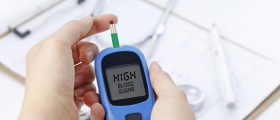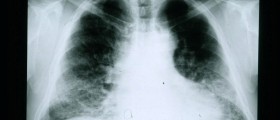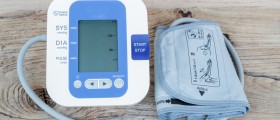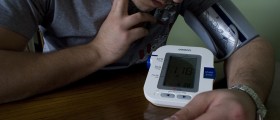
Hypertension is a condition that affects many people around the world. Essential hypertension is a type of hypertension with no identified underlying cause. On the other hand, secondary hypertension develops as a consequence of already existing medical condition such as heart, kidney or liver disease. Since the condition may remain asymptomatic for a certain period of time and still cause damage to specific tissues, organs and organs systems, hypertension is also known as the "silent killer".
What Is Benign Hypertension?
Benign hypertension is essential hypertension that lasts for a longer period of time and causes no symptoms and signs. The very term benign does not mean that this type of hypertension is not associated with damage to certain organs and organs systems. The term benign is only used in order to distinguish this type of hypertension from another type called malignant hypertension. Malignant hypertension develops rapidly, is acute and can quickly cause many serious complications such as stroke, heart attack or even lethal outcome.
Benign hypertension is characterized by an elevated systolic and diastolic measurements which may gradually increase. The body is slowly adapted to the increased blood pressure and it does not respond with any symptoms or signs. However, it is essential to identify even this type of hypertension and treat it properly because it eventually leads to serious damage to many organs.
What Are Characteristics of benign Hypertension?
Even though in majority of cases benign hypertension is asymptomatic some patients may develops certain symptoms and signs of the condition. They are usually mild and may sometimes be confused with symptoms and signs of other medical conditions. Some of them are transitory headache, nausea and ringing in the ears. A simple blood pressure measurement is an excellent way to check whether an individual is suffering from benign blood pressure.
Treatment for Benign Hypertension
The initial steps in treatment of benign hypertension are dietary changes and certain lifestyle changes. Such patients should limit the intake of salt and also avoid fatty foods. Intake of coffee and alcohol should also be limited, if not eliminated. And finally, by quitting smoking one may reduce the blood pressure and also prevent several more conditions associated with this unhealthy habit.
If dietary changes cannot bring the elevated pressure under control the person is prescribed with a medication or a combination of antihypertensive drugs. And finally, it is important to measure the pressure on regular bases. This can give a proper insight in effectiveness of the medicamentous therapy. In case certain medications are ineffective the doctor can change them for the more efficient ones.

















Your thoughts on this
Loading...